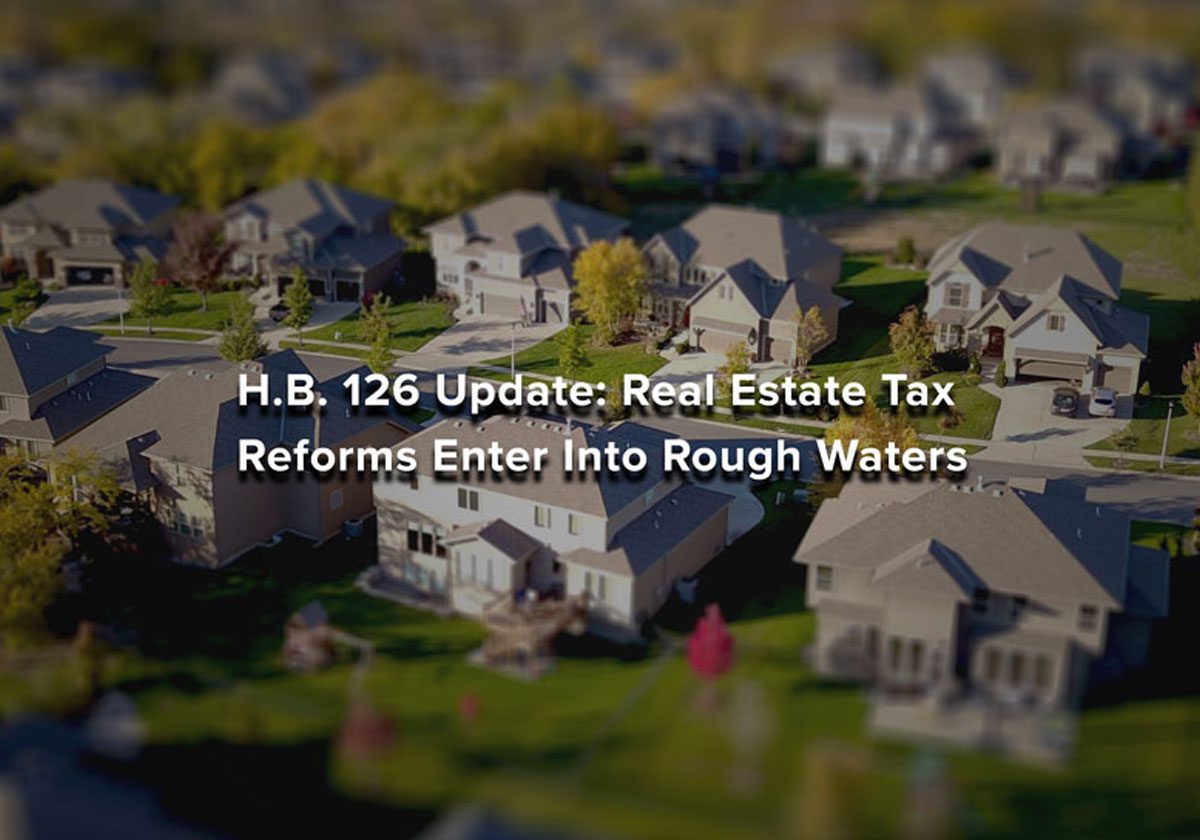About eleven months ago, the Ohio General Assembly enacted Am.Sub. H.B. No. 126. That legislation mandated several real estate tax reforms designed to increase certainty for property owners and developers, while limiting retroactive tax increases based on property sales. We addressed the legislation in an earlier SALT Buzz. Those changes took effect on July 21, 2022, with many of the filing restrictions becoming applicable for tax year 2022. Now that the March 31 deadline for filing challenges to the tax year 2022 assessment is drawing near, it is worth asking: Are the reforms fulfilling their purpose? Unfortunately, we have to report that H.B. 126 has run into rough waters, and property owners have a long distance to navigate before they reach port. Let’s take a look at two areas of concern.
As reported in our Buzz last year, part of H.B. 126 aimed at limiting challenges brought by school boards against property owned by private individuals and businesses. Beginning with tax year 2022, a school board may only file valuation complaints with the boards of revision if such property has sold in a recent arm’s-length transaction before, but not after, the tax lien date—since the lien date is the first of the year, January 1, 2022 was the tax lien date for the 2022 tax year. “Before but not after” the lien date: that is what the law says, but are school boards complying? In some instances the answer is sadly: no.
One negative example is action by a central Ohio board of education. At a recent meeting, that board approved a “consent agenda” item that included 43 resolutions authorizing complaints against 78 real estate parcels (H.B. 126 permits inclusion of multiple parcels in a single resolution if all have the same owner). The school board was informed that, for several of the parcels, the county auditor’s transfer records showed no sales within a reasonable time before January 1, 2022 (but did show sales after that date). Yet despite being made aware of the fact, the board approved all the resolutions in clear and knowing violation of H.B. 126. It did so based on the advice of its legal counsel, offered at the public meeting, that the board should preserve its rights for tax year 2022 because H.B. 126’s restrictions might be ruled unconstitutional at a later date.
We believe that the board acted improperly in that situation. Unlike private property owners, school boards are creations of the law and accordingly their “powers and duties extend only so far as the statutes grant authority, while being constrained by whatever limits the statutes impose.” Delaney v. Testa, 128 Ohio St.3d 248, 2011-Ohio-550, ¶ 20. The Ohio Supreme Court has recently and repeatedly held that political subdivisions and agencies—and school boards in particular—may not use constitutional protections to augment the authority that the statutes confer on them. Delaney, ¶ 21; Toledo City School Dist. Bd. of Edn. v. State Bd. of Edn., 146 Ohio St.3d 356, 2016-Ohio-2806. It follows that when H.B. 126 says, as it does, that school boards “shall not” file a valuation complaint if there is no qualifying sale before the tax lien date, the school boards should obey that mandate instead of defying it.
A second area of concern relates to H.B. 126’s prohibition against appeals by boards of education from the boards of revision to the Board of Tax Appeals. By enacting the prohibition, the legislature continued to permit taxpayers to take such appeals while affording taxpayers the benefit of finality when they prevailed before the boards of revision. But some boards of education are attempting an end run around H.B. 126 by filing appeals from the boards of revision to the common pleas court of the relevant county. These appeals once again reflect an aggressive legal strategy in which the school boards claim rights under Revised Code Chapter 2506 that have not previously been recognized in the context of board of revision cases.
Considering these developments, ZHF offers three observations:
- At least in the short term, the actions taken by some school boards are defeating H.B. 126’s objective to reduce the costs property owners incur when litigating property values.
- The legislative goals of finality and taxpayer certainty may someday be achieved, but will not materialize right away because school board attorneys continue to recommend an aggressive approach to participation in the valuation process.
- H.B. 126’s requirement that school boards approve resolutions to authorize complaints in public meetings is not, in the case of some school boards, leading to a more considered and restrictive approval of the filing of value complaints. We believe that such actions expose the boards of education to further restrictions from the General Assembly.


